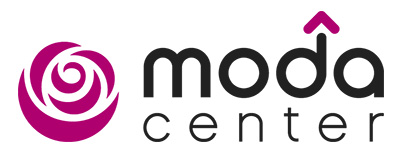At COR, when we think of waste diversion we consider every single type of waste. Many urban areas are on top of trash pick up and recycling, but we want Portland to also embrace composting, and that gets a bit more complicated. Food waste in America is a prevalent, and frankly, disturbing problem, but through one business at a time we hope to end it here at home. We’re COR so that means we’re starting big, in this case with Moda Center in coordination with Rip City Management and the Portland Trail Blazers.
Did you know humans are the only ones who produce waste? In nature, there is no waste which is the theory behind composting. Natural products can be biologically processed into a nutrient leaving nothing behind for the landfill. Food scraps shouldn’t be sent to landfills because there they decompose causing methane gas emissions that are 34 times more potent than carbon dioxide. And as humans are producing a larger and larger volume of waste, more than 72 billion pounds according to the Natural Resources Defense Council (NRDC), we need to design recycling and reuse into everything that we use.
The NRDC, with its mission to protect the planet and ensure the rights of people to clean air, water, and healthy communities, recognized that sports complexes are large generators of food waste. In response, several years ago they put together a guide to composting at sports venues. That effort led to the formation of the Green Sports Alliance which today has hundreds of member stadiums and sports teams supporting its mission. The Trail Blazers are one of those members. In fact, the Portland Trail Blazers, true to their name, were one of the first organizations to step up.
 The home of the Trail Blazers, Moda Center, is already onboard the recycling train. If you look around the complex you’ll notice plenty of recycling containers, and the food vendors refrain from using single-use plastic wherever possible. Diverting food waste is the next step. But composting food waste has been more challenging for the reason that it’s difficult to find a composting location and waste haulers to handle the volume that a sports complex creates. This is where COR comes in. We have already been working with Annen Brothers, Inc. in Mt. Angel to compost the food waste generated at Timbers and Thorns soccer games, so adding another sports complex makes sense for us.
The home of the Trail Blazers, Moda Center, is already onboard the recycling train. If you look around the complex you’ll notice plenty of recycling containers, and the food vendors refrain from using single-use plastic wherever possible. Diverting food waste is the next step. But composting food waste has been more challenging for the reason that it’s difficult to find a composting location and waste haulers to handle the volume that a sports complex creates. This is where COR comes in. We have already been working with Annen Brothers, Inc. in Mt. Angel to compost the food waste generated at Timbers and Thorns soccer games, so adding another sports complex makes sense for us.
Annen Brothers uses a Turned Aerated Pile System created by Green Mountain Technologies to turn food waste into usable compost. The organics are placed on a concrete pad that has aeration pipes running underneath it. Nozzles from the pipes are on the surface of the pad where they release airflow to aerate the pile of waste. Loaders and manure spreaders are driven onto the pad regularly to turn and water the piles to keep them biologically active. The compost that results, a process that can take weeks to months depending on volume and content, is used to fertilize the many hop fields, hazelnut groves, and other crops that Oregon is so known for creating a full closed-loop waste system.
At Moda Center, the organic waste recycling process begins with the vendors themselves who are trained on how to dispose of food scraps and compostables and keep them from becoming contaminated. Composting cannot be completed if the stream is contaminated with plastics and other waste that do not break down.
The next step will be to turn to the public and here the challenge is a bit deeper. We are creatures of habit and most are used to only two waste streams in our home, trash and recycling. Requiring an extra step to put food waste and compostables in one place and trash and recycling in another takes consistent education and patience, both on the part of the staff at the Moda Center and the patrons. But those few seconds it will take to separate trash from recycling and compost go a long way in protecting our planet. Consider that Moda Center produces about 900 tons of waste annually. The more that is composted and recycled, the smaller our landfills will be.
Sports are the great equalizer. It doesn’t matter what walk of life you come from when you’re standing among your fellow fans. That’s one of the reasons sports teams are so influential and why championing closed-loop waste systems at a sports complex has the potential to spark great change. Reducing waste through recycling and composting from such large venues reduces the need for landfills or incinerators. By promoting green actions, sports teams, and centers send a message of environmental responsibility to their fans and to their sponsors that helps emphasize the need for all of us to do our part. We’re proud to be helping Moda Center take center stage in combating waste.